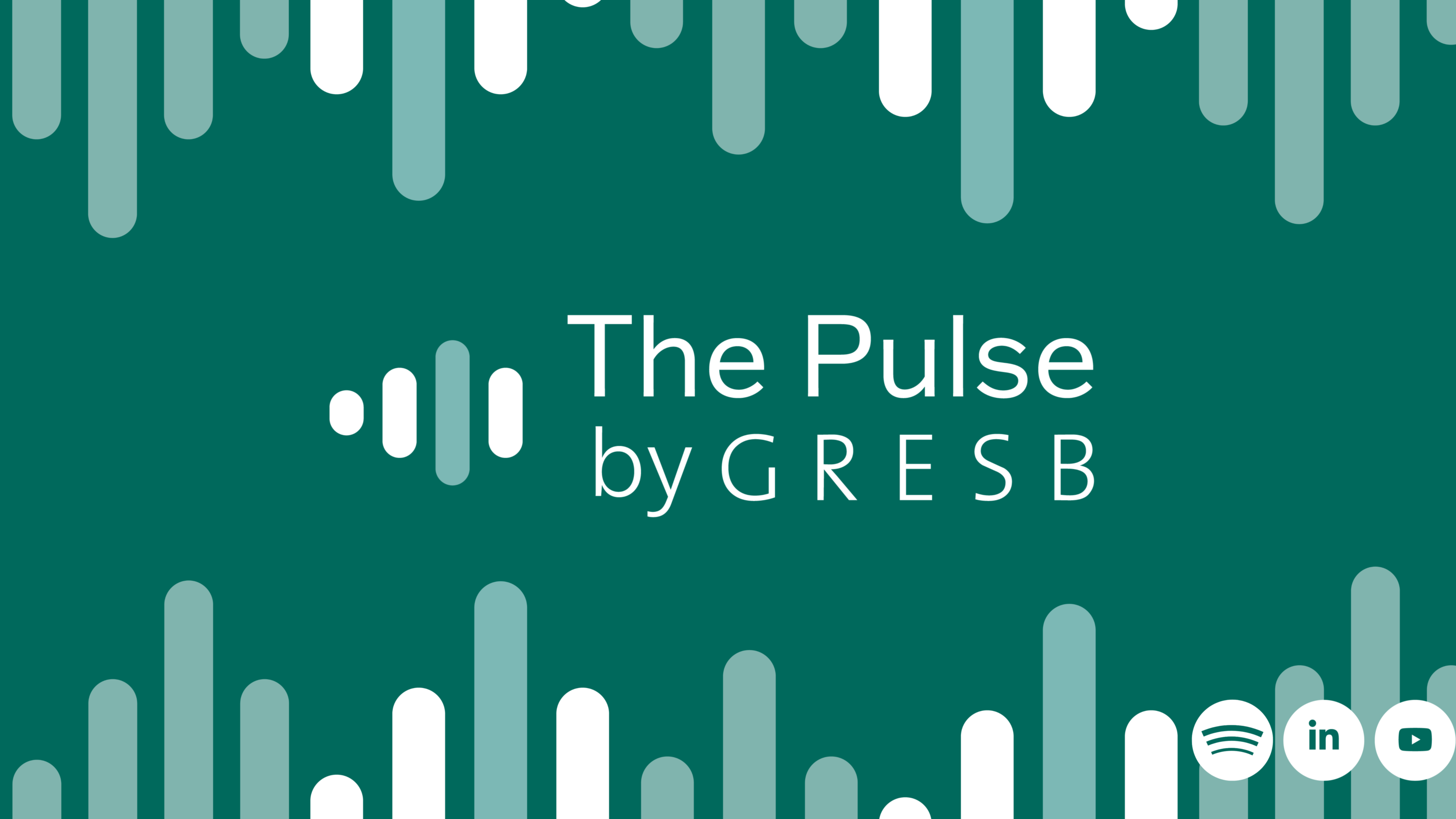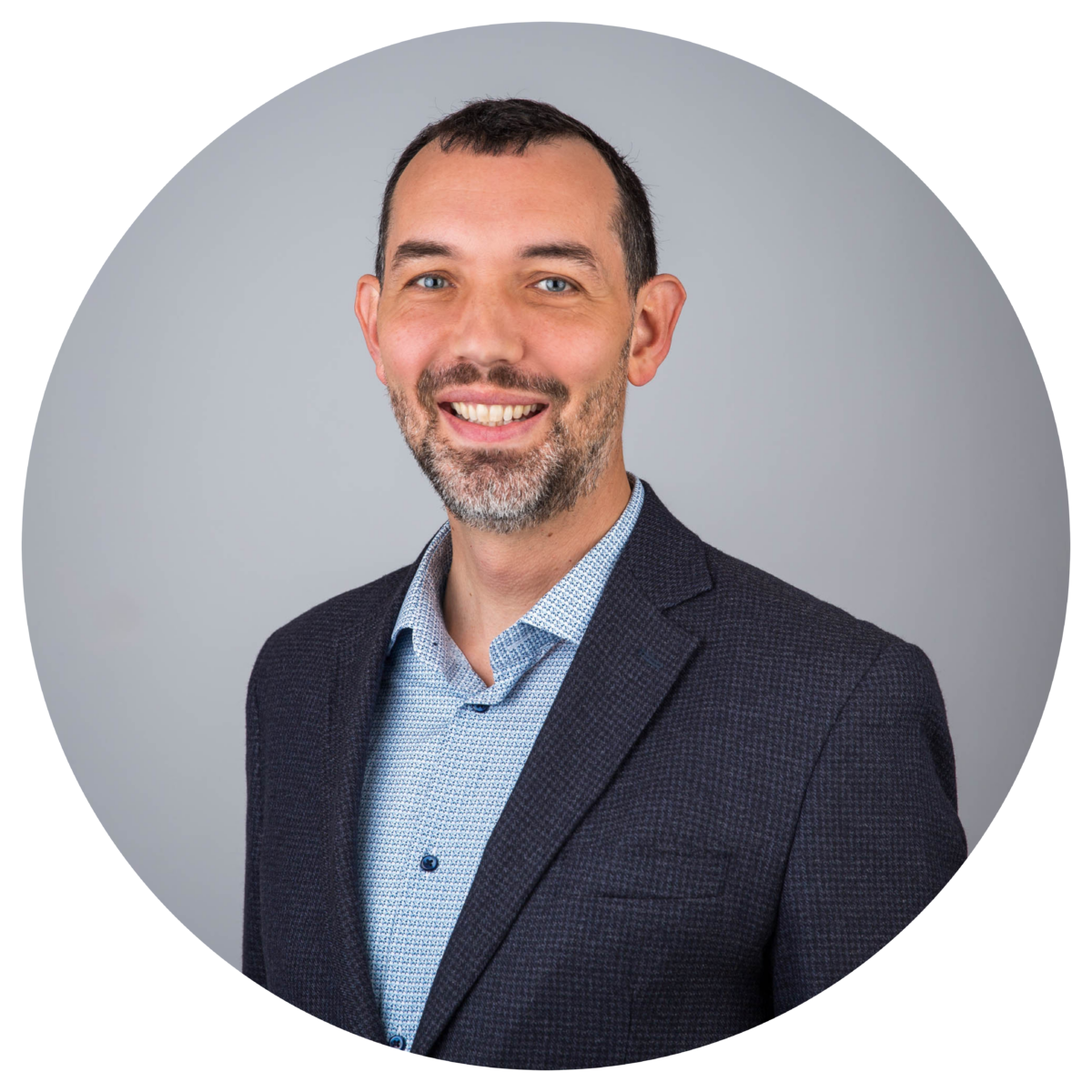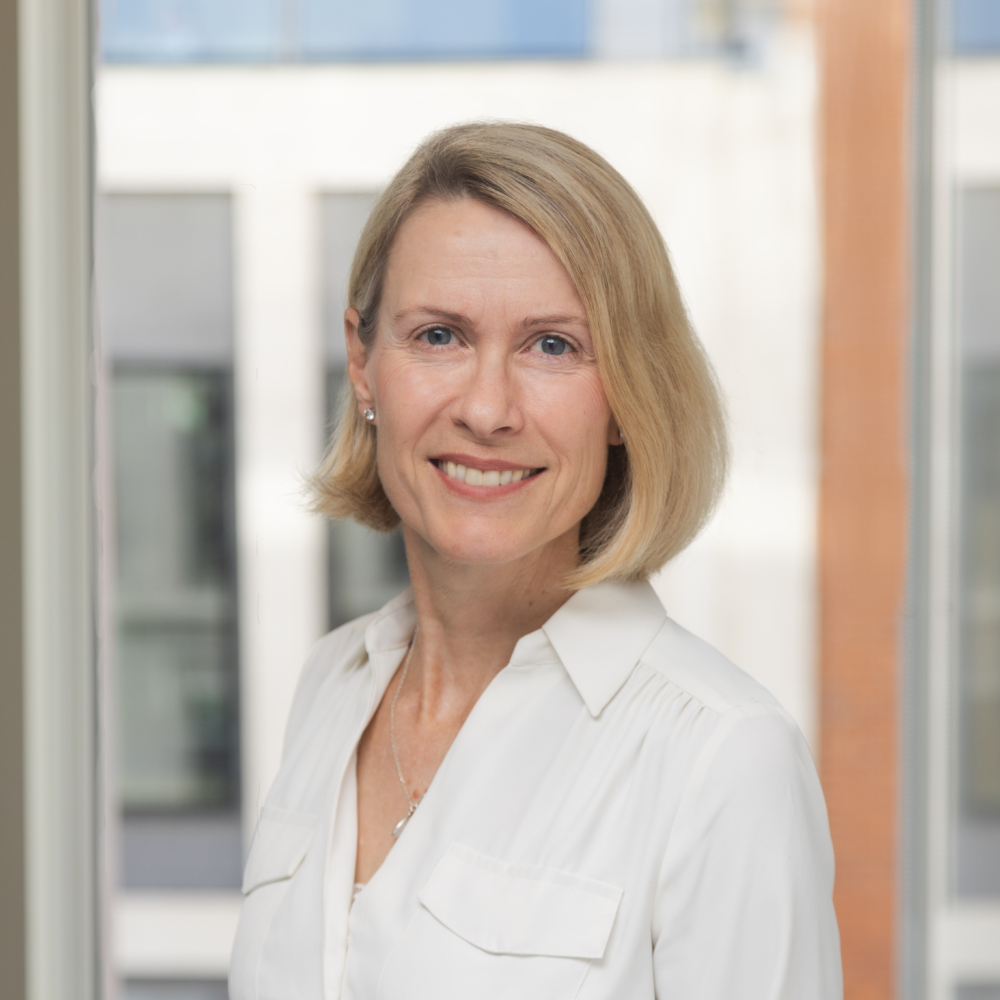
The Pulse by GRESB
The Pulse by GRESB is an insightful content series featuring the GRESB team, partners, GRESB Foundation members, and other experts. Each episode focuses on an important topic related to either GRESB, sustainability issues within real assets industry, decarbonization efforts, or the wider market.
- Watch on Youtube
- Listen on Spotify
- Listen on Apple Podcasts
Backing the benchmark: General Atlantic on GRESB and BeyondNetZero
Tune into the latest episode of The Pulse, featuring a conversation between Tyler Guthrie, Director of Marketing and Communications at GRESB, and Rhea Hamilton, Managing Director at General Atlantic. In this episode, they explore how General Atlantic approaches sustainability and resiliency across both the firm and its BeyondNetZero Fund. The discussion also touches on how GRESB fits into General Atlantic’s broader investment strategy and fund structure, offering insights into how leading investors are integrating sustainability considerations at scale.
Transcript
Can’t listen? Read the full transcript below. Please note that edits have been made for readability.
Tyler: Hello, I’m Tyler Guthrie, GRESB’s communications Director and the host of The Pulse today. In 2024, General Atlantic became the majority shareholder of GRESB B.V., the benefit corporation of the GRESB family, which is rounded off by the Independent, not-for-profit GRESB Foundation.
And today I’m speaking with Rhea Hamilton, Managing Director at General Atlantic’s BeyondNetZero Fund, who is helping guide GRESB through the next phase of growth.
Hello Rhea. Thank you so much for joining me today.
Rhea: It’s a pleasure to be here. Thanks Tyler.
Tyler: How does General Atlantic think about sustainability and resiliency across both the company and the BeyondNetZero Fund?
Rhea: It’s a great question and it is a very important part of General Atlantic.
For those who don’t know, General Atlantic’s been around for over 45 years. It was started by an entrepreneur who had a vision of building a company. And what we’ve been doing over the last 45 years is really helping companies grow and thrive. We believe that sustainability and resilience is an important piece of this.
In 2021, we created BeyondNetZero, a climate mitigation fund that’s focused on opportunities that will be able to have a significant avoidance of emissions or reduction in emissions. And we created the fund for a couple reasons. One was because we saw this as a huge opportunity for growth in the market, where we need to deploy capital, where there’s going to be significant opportunity going forward.
But also this is helping us to have better businesses. Whether that’s driving operational efficiency, looking at things from a risk management perspective, or the resilience around the assets themselves. So as a result of creating BeyondNetZero, we’ve obviously got a fund dedicated to this growth strategy, but at the same time we’ve been able to leverage a lot of the learnings out of the portfolio to the much broader General Atlantic portfolio as well to drive operation excellence.
Tyler: The success of what you’re learning from the fund across the company, is that a surprise or is that kind of confirming the theory of change that you’ve been operating with? Is there something that you can tell me about that experience so far?
Rhea: It wasn’t a surprise. How General Atlantic works is we have a lot of internal consultants and operational experts who help with our value creation across our portfolio companies. And as a result of the BeyondNetZero efforts, we’ve almost created an additional effort, value creation lever, that we’ve seen interest, not just from our BeyondNetZero portfolio, but also from some of the broader General Atlantic companies. So things like thinking about, how do I incentivize my management team to include something like sustainability or something around risk management related to decarbonization.
These are tools that we’ve got that we can help bring to some of the broader portfolio companies that they’re seeing this as just key to good operating businesses.
Tyler: It’s really good to hear how sustainable principles are good for all companies, all portfolios, all strategies. So, can you tell me a little bit about how GRESB fits into General Atlantic’s wider strategy? Or, kind of, the fund structure that you’re working with?
Rhea: GRESB was a fantastic opportunity for us. It fit in a few different ways. One is, General Atlantic has been very strong over the years, and more in the data information services, and the whole digital transformation has been a critical pillar to a lot of their investment strategy.
And if you translate that over to BeyondNetZero, we see a lot of similar things in terms of the importance of data that’s being driven by this digital revolution, that is driving change. And I think GRESB is a great intersection of both data and then the assets themselves where you’re seeing physical risk around the assets that GRESB is rating.
So, for us, when we were looking for an opportunity that both drove this digital transparency benchmarking alongside of an area where there’s significant amount of emissions, say, with the built environment, GRESB continually came to the top of our list of this is the company that’s the go-to , that obviously has the standard that can help drive not only transparency around the assets and how those assets are performing. But also, what people can do to improve the operation of those assets. And, ultimately, we see have a higher value for those portfolios.
Tyler: And can you tell me a little bit about what trends in the space around sustainability, efficiency, resiliency that you’re thinking about most right now or what the company is really watching closely?
Rhea: The world is obviously continuing to evolve. We’re seeing this climate physical risk being one of the areas that’s going to continue to drive opportunities going forward.
Obviously, GRESB addressing that with real assets and real estate products that they serve. But we’re looking at other areas. For example, we’ve just made an investment in a company called Technosylva that’s doing all the predictive analysis around catastrophic risks. So it’s complimentary in many ways as you’re looking at what’s going to be the impact of some of the climate shifts that we’re seeing on our assets, and how can we use all the data that we’re collecting now to be able to predict when those catastrophic events are going to happen, so that we can prepare ourselves, in many cases, shut down some of our systems to be able to prevent risk in the future.
Tyler: It’s nice to see the complementarity of these different companies who are providing different pieces of the puzzle. And, Rhea, what topics are you looking at personally, in this space?
Rhea: One of the areas that we’re spending quite a bit of time right now is looking at the overall energy demand going forward. In particular, if you think about things like data centers, where we’ve got energy hungry facilities that are significantly increasing the demand for electrons. What pressures does that put onto the system and what issues are we going to have to solve going forward?
So if you think about grid resiliency, optimization around the grid. These are definitely areas where we’re seeing new companies driving more the efficiency side.
Tyler: I find this to be a particularly interesting topic because GRESB right now is working on a data centers working group as part of the foundation work to try to figure out how we can create an assessment process and an approach to data centers that is really unique. Because they’re a very unique asset class.
They’re different than infrastructure. They’re different than real estate in a lot of ways. So it is nice to see that deep dive focus.
Can you tell me a little bit about how you see the GRESB Foundation as an organization within your overarching approach at the company? Was that something that you saw as a value add to the BeyondNetZero fund?
Rhea: It’s a great point. For us, the foundation and what the foundation brings to GRESB is a very important value add that we want to continue to sustain. I think having industry represented in being a part of the development of standards, which by the way, continue to develop over time, right? This is maturing. And we want to have industry buy-in to those standards. So, I think the foundation has got to be a key pillar and it was something that we looked at very positively when we were evaluating the investment.
Tyler: And when we think about the near term future, what do you see as some of the value creation opportunities today, tomorrow?
Rhea: Yeah, I think with GRESB it’s very exciting. Obviously they’re collecting a significant amount of data and we’re working with them in a variety of ways. Just to making transparent around how General Atlantic works, we have over 80 internal advisors and consultants who specialize in different areas.
And that can be anything from finding the top talents, could be thinking about how to adjust your go-to market strategy. How do you think about your organization efficiency as you’re continuing to grow, as we’re often working with very high growth companies and you’re continuingly having to reevaluate and position the company as best as possible.
And so for us, we’re going to be able to leverage those General Atlantic resources, and work with GRESB as they continue their growth trajectory. We’re extremely excited around how we can better use the data, not only to help position the investors themselves, but also then how to get them to act. And ultimately, see a decarbonization of the portfolios themselves.
Tyler: It’s a really exciting time to see what’s possible in the space. Thank you so much, Rhea, for taking the time today.
Really appreciate you joining me for a conversation.
Rhea: Thanks Tyler. It’s been a pleasure.

